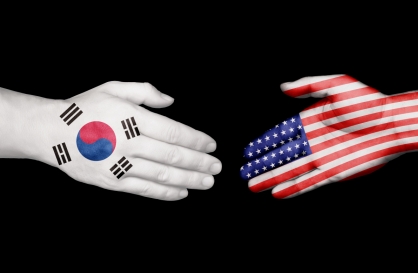[Allison Schrager] The perils of superstar culture in industries
By Korea Herald PhotoPublished : Dec. 15, 2022 - 05:31

One of the reasons the public is obsessed with Harry and Meghan is that they represent an important economic trend that resonates well beyond the British royal family: the rising tension between individual branding and the power and prestige of being part of an institution. And it’s not just the royals; it’s an issue for all industries.
In the past, if money and security and status were what you craved, your path was clear: You got a job at the most prestigious institution you could and became a valuable team player. This meant giving up some part of your identity. You wouldn’t be well-known to people outside your field, or probably even within the company. To a large extent, this was the relic of the last stage of industrialization -- The Man in the Grey Flannel Suit era. Back then, stars were for the movies, and office work involved keeping your head down and dedicating yourself to the advancement of the institution. In exchange for your fealty, you received a small share of the institution’s success and prestige.
This has reversed in our current economy. There are fewer movie stars but more high-profile people in all the other industries. For the film industry, it was a symbiotic relationship that relied on stars to pull people into theaters. But the dynamic is causing problems for other industries because it creates tension between being a star and being a good institutional team player.
This dynamic has been particularly noticeable in the media industry. Young up-and-coming journalists want to build their brand on social media by airing provocative opinions while also enjoying the resources and prestige of the world-renowned media companies that employ them. That’s a perilous proposition for their employers. After all, the New York Times or the Washington Post have spent many decades building their reputations for top-tier journalism and the majority of journalists there still do careful, thoughtful work without chasing after the limelight. But for better or worse, these institutions are now also associated with the high-profile social media antics of a few of their reporters who have leveraged their employers’ status to become big stars independently.
You can’t entirely blame the reporters for wanting to elevate their own names and reputations. The media industry doesn’t offer the same security it once did and building your own brand means more job security.
And it’s not just happening in the media. The whole economy has changed. Many industries reward superstars -- they get higher salaries, fame and can monetize their own brand while everyone else is left behind.
It’s always been true that marketing yourself is necessary to get ahead. The difference now is that instead of it happening through internal politics, people are doing it on a wider stage -- often beyond their firm and their entire industry. Our modern economy not only rewards the stars by paying them a bigger premium, it also makes self-promotion easier. Social media has democratized attention and notoriety for those who crave it.
Not surprisingly, this makes coworkers resentful. Not everyone can be a superstar. People who opt out of self-promotion have always paid a price, but at least in the past the price wasn’t so large since the gains of stardom were smaller and the value of institutional affiliation was more meaningful.
Companies also had more control over their staff and were less tolerant of brazen self-promotion. By building their brand externally, stars can raise the profile of their workplace, but they also can cheapen the brand and entangle it in divisive political or social issues. If a star gets really big they might cash in on the institution’s prestige (and their coworkers’ hard work) and go out on their own.
In theory, superstars become superstars because they’re more productive and talented, rather than just because they’re good at social media. But there’s evidence that superstars in the office can mean less pay for everyone else.
The royal family may be damaged by the self-promotion of Prince Harry and his wife Meghan, but the monarchy will probably survive. That’s not necessarily guaranteed for every company. When people were dedicated to building institutions, they worked in exchange for stability and prestige. Now stars that co-opt the institution can capture more of the gains for their own brands. How long can this last? Soon everyone will be forced to look out for themselves and institutions won’t have the same value anymore.
Or, this will pass. It’s notable that superstars are becoming less common in the one industry where they make the most sense: movies. Institutions such as Walt Disney Co.’s Marvel are becoming more powerful than the individual. Eventually stars become too expensive and aren’t worth hiring or cultivating. That could be the future for other industries, too.
Allison Schrager
Allison Schrager is a Bloomberg Opinion columnist covering economics. -- Ed.
(Tribune Content Agency)
-
Articles by Korea Herald Photo



![[AtoZ into Korean mind] Humor in Korea: Navigating the line between what's funny and not](http://res.heraldm.com/phpwas/restmb_idxmake.php?idx=644&simg=/content/image/2024/04/22/20240422050642_0.jpg&u=)


![[Herald Interview] Why Toss invited hackers to penetrate its system](http://res.heraldm.com/phpwas/restmb_idxmake.php?idx=644&simg=/content/image/2024/04/22/20240422050569_0.jpg&u=20240422150649)

![[Graphic News] 77% of young Koreans still financially dependent](http://res.heraldm.com/phpwas/restmb_idxmake.php?idx=644&simg=/content/image/2024/04/22/20240422050762_0.gif&u=)







![[Exclusive] Korean military to ban iPhones over security issues](http://res.heraldm.com/phpwas/restmb_idxmake.php?idx=652&simg=/content/image/2024/04/23/20240423050599_0.jpg&u=)



